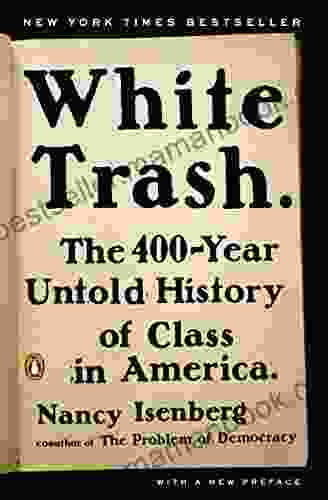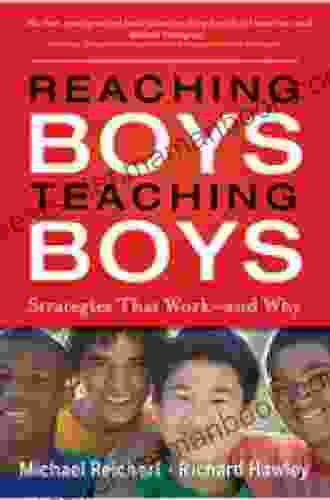The 400-Year Untold History of Class in America

4.4 out of 5
| Language | : | English |
| File size | : | 12566 KB |
| Text-to-Speech | : | Enabled |
| Screen Reader | : | Supported |
| Enhanced typesetting | : | Enabled |
| X-Ray | : | Enabled |
| Word Wise | : | Enabled |
| Print length | : | 476 pages |
Unveiling the Invisible Forces Shaping Our Nation
For centuries, class has been an invisible yet powerful force shaping the fabric of American society. Unlike other forms of stratification, such as race, ethnicity, or gender, class has often remained hidden from view, its dynamics and implications obscured by a veil of silence. This article aims to lift that veil and shed light on the 400-year untold history of class in America.
From Colonial Roots to Industrial Expansion
The seeds of class division were sown in the colonial era, where a hierarchy emerged based on wealth, occupation, and land ownership. The wealthy elite, composed of merchants, landowners, and slaveholders, held significant economic and political power. In contrast, the working class, including farmers, artisans, and laborers, struggled to make ends meet and had little influence on decision-making.
Industrialization in the 19th century further exacerbated class disparities. The rise of factories and corporations created a new class of industrialists and corporate titans who amassed immense wealth and influence. Meanwhile, the working class faced harsh working conditions, low wages, and limited opportunities for advancement.
The Rise of Class Consciousness
As class divisions deepened, so too did class consciousness among the working class. In the late 19th and early 20th centuries, the labor movement emerged as a powerful force for social change. Unions fought for better wages, working conditions, and political representation, challenging the dominance of the wealthy elite.
Simultaneously, intellectuals and social reformers began to study and advocate for class equality. Progressive thinkers, such as Thorstein Veblen and C. Wright Mills, exposed the inequalities and injustices inherent in the American class system.
The Post-War Boom and the Fragmented Middle Class
The post-World War II era witnessed the emergence of a large and prosperous middle class. The growth of suburbanization, the expansion of higher education, and the proliferation of consumer goods created a sense of economic stability and upward mobility for many Americans.
However, over time, the post-war prosperity began to erode. Global competition, technological advancements, and deregulation of industries led to a decline in manufacturing jobs and stagnant wages for many working-class Americans. The gap between the wealthy and the rest of society widened, and the middle class began to fragment.
Class and Identity in Contemporary America
In the 21st century, class continues to play a significant role in shaping American society. While traditional class lines may be blurred, new forms of stratification have emerged, based on education, income, occupation, and access to technology.
Class dynamics also intersect with other forms of identity, such as race, ethnicity, and gender. The experiences of being a Black working-class woman, for example, are distinct from those of a White working-class man. Understanding these intersectionalities is crucial for developing effective policies and strategies to address persistent inequalities.
Challenges and Opportunities for the Future
The history of class in America reveals a complex and evolving landscape. While progress has been made towards greater equality, significant challenges remain.
Economic inequality remains a pressing issue, with the wealth gap between the richest and poorest Americans continuing to grow. The erosion of unions and the decline of the middle class have weakened the bargaining power of workers and reduced opportunities for upward mobility.
At the same time, there are opportunities to address class disparities and create a more equitable society. Expanding access to education, affordable housing, and healthcare can help break down barriers to economic advancement. Progressive taxation, minimum wage increases, and investments in social programs can also help reduce inequality and provide a safety net for those in need.
The untold history of class in America is a story of both struggle and progress. It is a tale of division and inequality, but also of resilience and hope. By uncovering the invisible barriers that shape our society, we can develop a deeper understanding of the challenges and opportunities we face. Only by embracing a transformative vision of class equality can we build a truly just and equitable future for all Americans
4.4 out of 5
| Language | : | English |
| File size | : | 12566 KB |
| Text-to-Speech | : | Enabled |
| Screen Reader | : | Supported |
| Enhanced typesetting | : | Enabled |
| X-Ray | : | Enabled |
| Word Wise | : | Enabled |
| Print length | : | 476 pages |
Do you want to contribute by writing guest posts on this blog?
Please contact us and send us a resume of previous articles that you have written.
 Top Book
Top Book Novel
Novel Fiction
Fiction Nonfiction
Nonfiction Literature
Literature Paperback
Paperback Hardcover
Hardcover E-book
E-book Audiobook
Audiobook Bestseller
Bestseller Classic
Classic Mystery
Mystery Thriller
Thriller Romance
Romance Fantasy
Fantasy Science Fiction
Science Fiction Biography
Biography Memoir
Memoir Autobiography
Autobiography Poetry
Poetry Drama
Drama Historical Fiction
Historical Fiction Self-help
Self-help Young Adult
Young Adult Childrens Books
Childrens Books Graphic Novel
Graphic Novel Anthology
Anthology Series
Series Encyclopedia
Encyclopedia Reference
Reference Guidebook
Guidebook Textbook
Textbook Workbook
Workbook Journal
Journal Diary
Diary Manuscript
Manuscript Folio
Folio Pulp Fiction
Pulp Fiction Short Stories
Short Stories Fairy Tales
Fairy Tales Fables
Fables Mythology
Mythology Philosophy
Philosophy Religion
Religion Spirituality
Spirituality Essays
Essays Critique
Critique Commentary
Commentary Glossary
Glossary Bibliography
Bibliography Index
Index Table of Contents
Table of Contents Preface
Preface Introduction
Introduction Foreword
Foreword Afterword
Afterword Appendices
Appendices Annotations
Annotations Footnotes
Footnotes Epilogue
Epilogue Prologue
Prologue Chad Zunker
Chad Zunker Boris Kachka
Boris Kachka Stephen Crane
Stephen Crane J F Penn
J F Penn Joe H Bell Jr
Joe H Bell Jr Gage Averill
Gage Averill Kindle Edition
Kindle Edition Kem Nunn
Kem Nunn Craig Fear
Craig Fear Michael Brandman
Michael Brandman Dheeraj Mishra
Dheeraj Mishra Jim White
Jim White George Lakey
George Lakey Jm Alvey
Jm Alvey Daisy Farm Crafts
Daisy Farm Crafts Tamara Munzner
Tamara Munzner Ashley Woods
Ashley Woods Lee Breuer
Lee Breuer Lea Rawls
Lea Rawls Charles Kiernan
Charles Kiernan
Light bulbAdvertise smarter! Our strategic ad space ensures maximum exposure. Reserve your spot today!
 Devon MitchellFollow ·15.7k
Devon MitchellFollow ·15.7k Henry GreenFollow ·3.5k
Henry GreenFollow ·3.5k Braden WardFollow ·17.8k
Braden WardFollow ·17.8k Gerald BellFollow ·5.9k
Gerald BellFollow ·5.9k Graham BlairFollow ·11.6k
Graham BlairFollow ·11.6k Jimmy ButlerFollow ·8.4k
Jimmy ButlerFollow ·8.4k Levi PowellFollow ·11.3k
Levi PowellFollow ·11.3k Mario Vargas LlosaFollow ·19.5k
Mario Vargas LlosaFollow ·19.5k

 David Foster Wallace
David Foster WallaceA Comprehensive Journey Through Economic Thought: A Brief...
Economics, the study of...

 Phil Foster
Phil FosterRecipes for Two: Nourish Your Body, Nourish Your...
Cooking and sharing meals together is one of...

 Alexandre Dumas
Alexandre DumasThe Ultimate Monkey Hat: Emery Leeann
If you're an animal lover,...

 Chadwick Powell
Chadwick PowellThe Breakbeat Poets Vol. 4: Black Girl Magic - Unveiling...
In the realm of...

 Dan Brown
Dan BrownAn Emotional and Touching Love Story: A Journey of Love,...
This is a love story that will stay with you...
4.4 out of 5
| Language | : | English |
| File size | : | 12566 KB |
| Text-to-Speech | : | Enabled |
| Screen Reader | : | Supported |
| Enhanced typesetting | : | Enabled |
| X-Ray | : | Enabled |
| Word Wise | : | Enabled |
| Print length | : | 476 pages |











